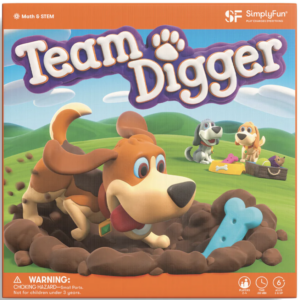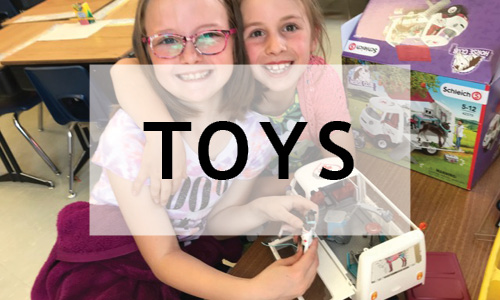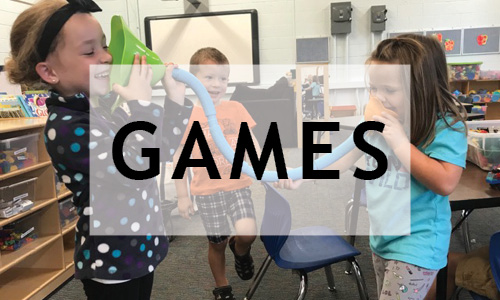
Team Digger is the perfect unplugged coding game where kids practice sequencing, planning, problem solving, and logic. In this cooperative game, players create 5-card sequences to move their dogs from one dig site to another around the game board. They work together to dig up four bones before they dig up five unwanted objects.
After setting up the game board, players are dealt 7-10 cards, consisting of five actions: walk, run, turn right, turn left, and dig. Players work together to swap cards as needed and can trade for unlimited turns. Trading encouraged the cooperative play element as well as communication throughout gameplay.
There’s a fun memory component, where players are permitted to peek at covered objects around the gameboard. Players must first create a “chase your tail” code, which includes moving your dog in a circle. Teammates then used memory strategies together to recall which objects were worth digging.
Why We Love It
The problem solving, sequencing, and logic practice that players worked in Team Digger were fantastic. They carefully created codes by placing their cards down, used spatial reasoning, and revised their code sequence to ensure accuracy. An optional LEADER card can be included in gameplay. The LEADER rotates in each round and makes suggestions on what’s best for the group. We talked about what makes a good leader, how to make recommendations, and best of all – everyone got a turn.
For instance, as Player 1 began to generate a code for a dig space that was nearby, and struggled to do so with just a 5-card sequence, our team leader for the round suggested “You could put your Turn Left card first and then just trade for a Run card.” In another round, a leader suggested “Let’s all chase our tail this round so we don’t get anymore unwanted objects.”
Team Digger worked great for mixed ages (awesome for sibling play!). There was conversation throughout the game about strategy, individual goals (“I really want to find the pink bone!”) and team goals. Players exercised higher level thinking skills such as problem solving, memory, planning and reasoning, while having fun coding in a screen-free way.
Available at SimplyFun



